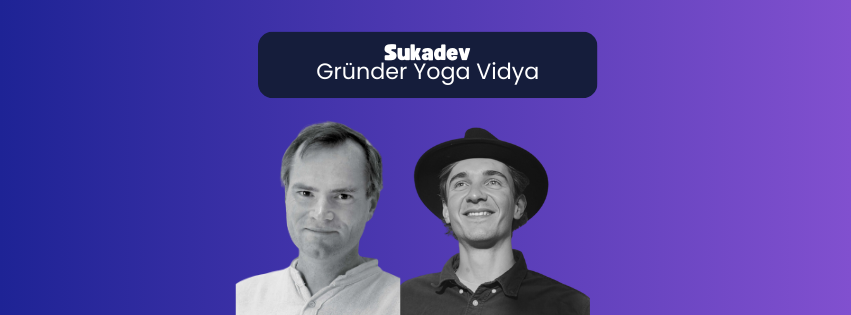Andreas, co-founder of Wetell, was recently interviewed by Manuel on the Why, Not How podcast, where they discussed his personal journey, Wetell’s unique business model, and the profound impact that responsibility ownership has on the company’s culture. The interview delves into his motivation for entrepreneurship, his desire to build a company that balances profit with purpose, and how he navigates the challenges of starting a sustainable business.
The Early Days: A Passion for Change
Andreas grew up in Freiburg, a city known for its environmentally-conscious mindset. From an early age, he was deeply concerned about the environmental issues affecting the world, particularly the climate crisis. His passion for science and technology led him to pursue an engineering degree, but he soon found himself at a crossroads. The promises of high salaries in industries like pharma, defense, and entertainment conflicted with his core values.
This internal conflict led him to seek a path where he could merge his technical skills with his commitment to sustainability. He began working at the Fraunhofer Institute for Solar Energy Systems, where he researched solar cells. However, despite the promising technology, he found himself frustrated with the disconnection between the technological solutions for renewable energy and the lack of systemic change.
A Search for Purpose
Andreas’s frustration grew as he realized that the energy transition was not only about technology but also about the broader social and economic systems that needed to be in place for real change to happen. His quest to make a more meaningful impact led him to start his own engineering consultancy, focused on renewable energy systems in underserved regions like Haiti. While he found the work rewarding, it still didn’t provide the deeper sense of purpose he was seeking.
The turning point came when he teamed up with Alma and Nico, his co-founders at Wetell, to tackle the broader issue of sustainability. They realized that technology alone wouldn’t solve the climate crisis. They needed to bring about a shift in societal behavior, particularly in how businesses and individuals approach sustainability. This led to the formation of Wetell, a B2C impact startup aimed at transforming the mobile telecom industry by offering a sustainable alternative.
Wetell: A Company with a Mission
From the outset, Wetell was built with the intention of blending purpose and profit. The founders wanted to show that sustainability and business growth could go hand-in-hand. Wetell offers a mobile service where profits are reinvested into social projects that support sustainability. This model also aligns with their commitment to ethical business practices and their desire to be transparent and authentic with customers.
One of Wetell’s key innovations is its responsibility ownership model, which ensures that the company remains focused on its mission. By shifting to a structure that cannot be sold or profited from by external investors, Wetell guarantees that its values will stay intact, even as it grows. This approach not only supports the company’s long-term vision but also strengthens its bond with customers, who see Wetell as a business that walks the talk when it comes to social impact.
The Role of Marketing and Communication
Andreas’s journey also includes a deep dive into the world of marketing and customer engagement. He and his team recognized early on that they weren’t just selling mobile plans—they were selling values. They were offering customers the chance to align their telecom choices with their personal values around sustainability and social responsibility.
However, as Andreas candidly admits, the road to success in the sustainability space wasn’t easy. The market is flooded with greenwashing and eco-friendly claims, making it difficult for customers to discern what’s genuinely sustainable and what’s just a marketing gimmick. For Wetell, the solution was to focus on authenticity and transparency—ensuring that their message was clear, honest, and deeply rooted in their business’s DNA.
Key Learnings from Andreas’s Journey
- Value Alignment is Key: Building a business that aligns with personal values is crucial. Whether you’re focusing on impact-driven ventures or sustainable practices, the key is to ensure that the company culture and business model reflect your personal mission.
- Impact Comes from Systemic Change: Technology alone won’t solve the world’s problems. To truly make an impact, it’s necessary to address the systemic issues that hinder progress, whether that’s through changing consumer behavior, fostering sustainability, or tackling economic inequalities.
- Be Authentic in Your Storytelling: Customers are overwhelmed with “green” claims, so authenticity is paramount. Sharing an honest, transparent, and value-driven story helps build trust and loyalty, especially in a space as competitive as sustainable business.
- Responsibility Ownership Is a Powerful Model: The decision to transition Wetell into a responsibility-owned company was not only about protecting the company’s mission—it was a way to ensure that the business could scale sustainably without compromising its values.
- Team Dynamics Matter: The success of any venture comes down to the strength of the team. It’s important to build a cohesive team that shares the same vision and values. But equally important is investing in the care and development of the team over time to ensure lasting success.
Andreas’s story is a powerful example for early-stage entrepreneurs who want to build impact-driven startups. It shows that sustainability and business success aren’t mutually exclusive, and with the right values, an authentic approach, and a clear mission, it is possible to build a business that positively impacts society.



